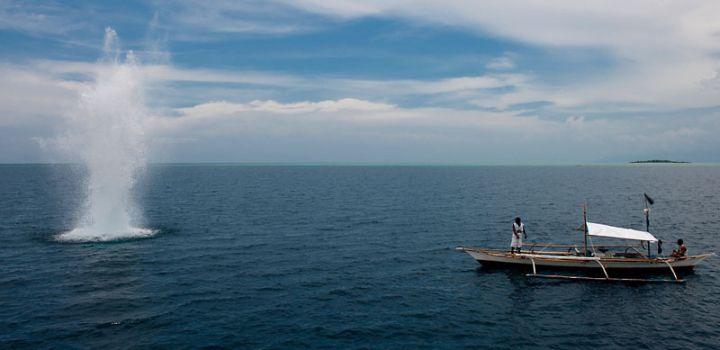
Having been on diving trips around the developing world, I have had the unpleasant experience of witnessing the terrible practice of dynamite fishing over the years. There has been a lot of effort, funding and education provided to help curb the practice, but sadly it still does happen. Researchers in Tanzania had an unpleasant discovery while studying whales and dolphins in the African country. They found out that Tanzanian fisherman routinely use bombs for fishing purposes also known as ‘blast-kill fishing.’ This basically entails using explosives to stun or kill large schools of fish, which are then more ‘easily’ collected. Blast fishing was said to be introduced by European armies in the first world war, who used grenades to catch fish for a fresh mail. As you can imagine, this is extremely damaging to the surrounding ecosystem, and often to the fishermen themselves, and luckily is illegal in most places.
However, the practice still continues, especially in impoverished areas of the World. Currently, blast fishing is most used in South East Asia and Africa.The effects on coral reefs is especially devastating, turning the coral reefs into an effective graveyard with little hope for recovery. Additionally, the blast usually kills more fish than can be harvested. Although the practice should be easily policed, the mining and construction activity in Tanzania currently could be another reason that it is easier to obtain dynamite and also conceal blast fishing in Tanzania’s waters. Underwater recordings taken in March by National Geographic recorded up to 10 blasts per day. The Tanzanian government wants to stop the practice and is currently planning to begin a $1 million dollar initiative to reduce blast fishing. MORE










0 Comments